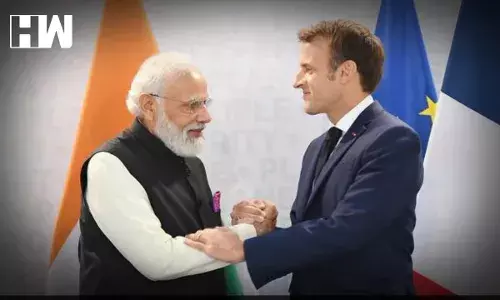New Delhi: Apart from speaking at the crucial India-Nordic summit in Copenhagen, Prime Minister Narendra Modi is set to go to Europe from May 2 to May 6 for bilateral discussions with re-elected French President Emmanuel Macron and German Chancellor Olaf Scholz.
Following Macron’s re-elected as President of France for a second term with a landslide victory, Prime Minister Modi is scheduled to visit Paris to meet and greet the leader of one of India’s closest bilateral partners.
Apart from sharing similar views on the Indo-Pacific, India and France have very tight political and defence ties, with both sides prepared to assist each other in areas of important and new technologies.
In addition to mapping the Indian Ocean bed, India and France are likely to press forward on PM Modi’s Atmanirbhar Bharat project by developing air independent propulsion submarines and high thrust aircraft engines in India.
PM Modi and President Macron have a personal relationship, and the latter is aware of India’s views on the Ukraine-Russia conflict.
With Russia’s Ukraine campaign continuing apace, the conflict in Europe will be at the top of PM Modi’s agenda during his visit to the Nordic countries, with Germany reconsidering its stance on Moscow. Germany has long been a major trading partner of both Russia and China, but the Ukraine conflict and the new Chancellor have forced Bonn to reconsider about its national security.
Investment, clean technologies, and trade will be high on PM Modi’s agenda, as he pushes for better bilateral links with Nordic countries and a healed relationship with host Denmark. The Nordic countries, unlike in the past, wish to maintain close connections with India.
PM Modi will strive to renew the bilateral connection with German Chancellor Scholz, despite the fact that the specific date and time of his meetings are still being worked out.
Germany had built very close trade links with China under Angela Merkel’s government, selling high-end autos to Beijing and maintaining a large oil and gas partnership with Russia. The Russian invasion of Ukraine, on the other hand, has changed the game, with Germany agreeing to expand its defence spending.
As an independent media platform, we do not take advertisements from governments and corporate houses. It is you, our readers, who have supported us on our journey to do honest and unbiased journalism. Please contribute, so that we can continue to do the same in future.

